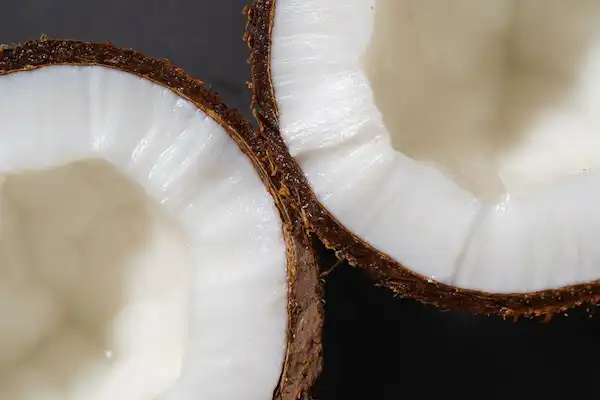Coconut water’s popularity has surged recently, thanks to its reported health benefits and low-calorie count. But one thing to remember if you’re putting it into your body: this supposedly health-boosting drink can be saltier than the ocean itself! Read on to know if we could salt coconut water.
Can you put salt in coconut water?
Sugar will not be absorbed if you drink it with salt because of the osmotic pressure in your stomach. Coconut water is good for kidney stones, not to put salt in it.
Avoid consuming more than 4 cups daily, and don’t drink it with meals.
Coconut water is only 60% as hydrating as pure water. It can cause too much sodium, which may lead to high blood pressure or increase calcium excretion from bones, leading to osteoporosis or kidney stones.
As such, it is best to avoid adding salt to your coconut water.
When replacing other beverages with coconut water, most people do not compensate by eating less food. Most calories come from sugars added to the beverage rather than the natural sugars found in fresh coconuts.
There has been no evidence that consuming coconut water leads to weight loss or improved hydration levels compared to drinking plain water. Or another type of calorie-free beverage.
What to mix with coconut water to make it taste better?
To naturally sweeten the coconut water, add a pinch of sea salt, a lime squeeze, or a mint sprig. The most important thing to remember is that you don’t want to add too much salt because it will overpower the natural sweetness of the drink.
Too much salt can also be dangerous and could lead to dehydration. Using just enough to taste or no more than 1/4 teaspoon per 16 ounces of liquid is best.
It can last a week in the fridge if stored properly in an airtight container. Some people like to freeze their coconut water for longer-term storage, so they have access year-round, but this does diminish some of its nutrients over time.
If stored properly in an airtight container, fresh coconut water should stay on your shelf for about two weeks at room temperature (or in your fridge). Frozen versions should last at least six months if well wrapped with food-grade material such as plastic and foil.
The best ways to drink coconut water are chilled in a glass with ice cubes, blended into smoothies, or frozen into popsicles.
Can coconut water be used as ORS?
ORS can be replaced with water, clean cooking water, or oral rehydration solutions such as Pedialyte. These liquids have the right amount of sugar and salt to replenish your body’s needs after dehydration. Adding salt to coconut water will make it even more salty and unhealthy for you than it already is.
Coconut water is a natural thirst quencher containing five times the potassium in sports drinks like Gatorade. This drink has become so popular recently because many believe that it helps them avoid dehydration during exercise due to its high levels of potassium and electrolytes. Chloride ions are essential when regulating blood pressure. Still, they are also needed to help maintain the electrical gradient across cell membranes.
On the other hand, potassium ions work together with sodium ions to regulate nerve impulses. When we are dehydrated, our cells lose their ability to do these things and thus lose their ability to carry out essential functions.
What happens if I drink coconut water every day?
The best time to drink coconut water is in the morning, before or after a workout. If you’re drinking it for hydration, stick with plain old H2O.
With an empty stomach, your body will absorb as much liquid as possible and take up most of its nutrients. And when mixed with salt, not only will you consume too much sodium overall, but coconut water’s potassium content may also be negated.
For those who still want to flavor their beverage of choice, experts recommend using fruit-based ingredients like lemon juice or lime juice instead.
The daily limit should be two cups per day. Too much coconut water can lead to electrolyte imbalance and kidney stones.
Coconut water for urine? Please don’t believe it! Coconut water increases sperm. Not true! Drinking more than 2 cups daily could also lead to other health issues, including diabetes, high blood pressure, migraines, and depression.
Conclusion
It’s hard to know what you’re adding when you salt coconut water. A teaspoon of salt can be roughly equivalent to one tablespoon of sugar in terms of sweetness. It also contains twice as much sodium per teaspoon. Too much salt can disrupt your body’s fluid balance and mess with your heart rate. So unless you’re trying to regulate your electrolytes, we suggest tasting first before seasoning.
